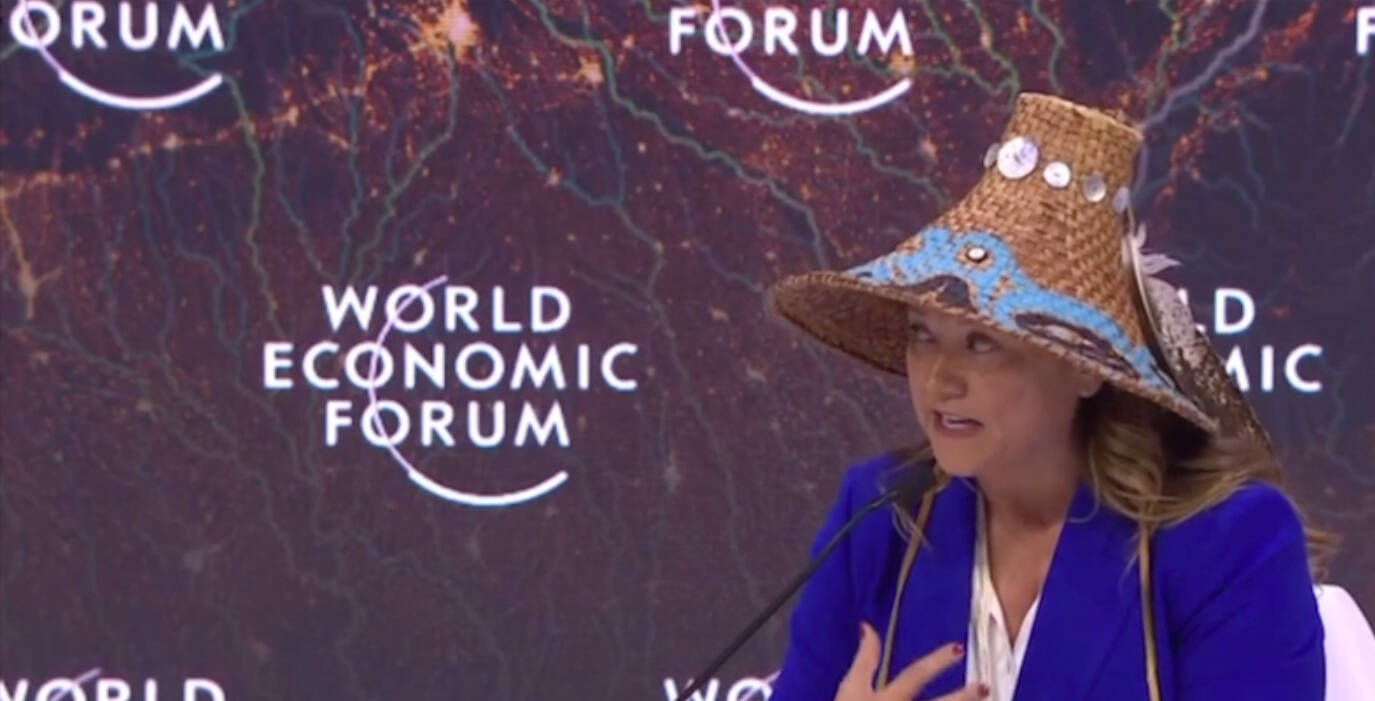Indigenous issues took center stage Wednesday at the World Economic Forum in Davos, Switzerland.
National Congress of American Indians President Fawn Sharp, a past president of the Quinault Indian Nation, told world leaders that Indigenous knowledge and lands are key elements in a global climate change strategy.
“The very place where my ancestors signed our treaty is now underwater, and we are not alone,” she said. “Indigenous peoples all across the planet are on the front lines.”
More than 3,000 leaders from government and business participated in the World Economic Forum. A new report was released by the forum, “Embedding Indigenous Knowledge in the Conservation and Restoration of Landscapes.”
That report found that Indigenous communities are already a part of the solution.
“Evidence shows that Indigenous custodianship, where it’s been able to be maintained, has a direct benefit to the environment,” the report states.
About 32% of the world’s mappable territories are still owned or governed by Indigenous people and local communities. Of that, 65% are considered in good ecological condition. “That is to say, they have zero to low levels of human modification,” the report states.
Nearly all of the lands maintained by Indigenous peoples and local communities, about 91 percent, are in good or moderate ecological condition, according to the report.
Sharp said that Indigenous people reflect that optimistic future.
“When you look at the scale of that crisis,” she said, “one might think that we are weak and vulnerable. But I want to make it very clear here today. To the contrary, we are strong, we are resilient. We have in our DNA ancestral knowledge that goes back from that very first generation that was called to planet Earth.”
Sharp was followed by former Vice President Al Gore who said the climate crisis continues to get worse at rates faster than the solutions that are being proposed.
Gore cited Sharp’s support for a Washington state green energy initiative that would have had a transformative impact on fossil fuels.
“You’ve had problems in your area where you tried to get legislation and the oil and gas industry came in and fought you. Right?” he said. “Every piece of pro-climate legislation at the national level, the regional level, the local level, municipal level, the oil and gas industry, and the coal industry, they come in and fight it tooth and nail. And they use their legacy network of political influence and wealth to stop progress.”
He said these institutions have to be reformed “so that the people of this world, and including the young people of this world, can say, we are now in charge of our own destiny.”
Sharp told global leaders that there is a connection between sacred lands and the climate.
“I personally have come in the last four months, face-to-face with sacred sights at Oak Flat, entering that sacred place where the San Carlos Apache people leap to their death. And I felt the thunder,” she said. “I’ve been at Cheyenne and Arapaho and offering prayers, and we were surrounded by 800 buffalo, and we could feel them, we could feel their energy. And we are taught the salmon cannot get out of the ocean to defend themselves in court and in lawsuits, but we are their voice and we are their guardians, and we have that sacred duty.”
She said it’s important to look at the science and then make the connection to the political decisions.
“Do not look at decisions as a cost of business. Look at decisions as human existence and our relatives’ existence for generations to come,” she said.
Mark Trahant, Shoshone-Bannock, is editor-at-large for Indian Country Today. On Twitter: @TrahantReports Trahant is based in Phoenix. The Indigenous Economics Project is funded with a major grant from the Bay and Paul Foundations.



